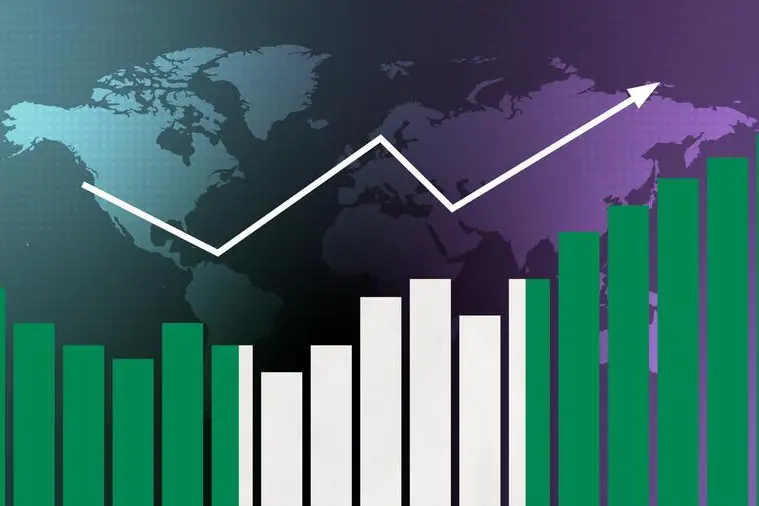Nigeria stands as Africa’s largest economy, supported by three powerful pillars: oil and gas, agriculture, and telecommunications. These sectors shape national growth, drive regional influence, and sustain millions of jobs across the country. As global markets evolve and Africa becomes more central to international trade, Nigeria’s economic structure continues expanding through diversification, industrial growth, and technological innovation. With a population exceeding 220 million people—one of the youngest and fastest-growing in the world—Nigeria’s economic potential remains unmatched on the continent.
Oil and Gas: The Engine of Nigeria’s Economic Strength
Nigeria’s oil and gas sector has long defined the nation’s economic identity. As one of the world’s top oil producers and the largest in Africa, the country relies heavily on crude oil for export earnings and government revenue. Offshore and onshore fields operated by national and international companies generate billions in foreign exchange annually.
The petroleum sector fuels infrastructure development, foreign investment, and energy-related industries. Natural gas reserves—among the largest globally—provide additional opportunities through LNG exports and domestic power generation. Although global shifts toward renewable energy have sparked debate, Nigeria continues investing in modernizing oil infrastructure, reducing pipeline losses, and expanding downstream activities like refining and petrochemical manufacturing.
Agriculture: The Backbone of Rural Prosperity and Food Security
While oil dominates headlines, agriculture remains the largest employer in Nigeria and a cornerstone of national development. Over 70% of Nigerians rely on agricultural activities for their livelihood. The country produces cassava, cocoa, maize, yams, rice, sorghum, palm oil, and livestock at massive scale.
Recent government programs promoting mechanization, irrigation, and seed improvement have strengthened productivity. Local demand continues to grow due to population expansion, creating opportunities in agro-processing, storage, and export markets. Furthermore, agriculture anchors rural economies, supports food security, and encourages diversification away from oil dependency. With modern technology—such as drone farming, digital marketplaces, and climate-smart agriculture—Nigeria’s agricultural future looks increasingly promising.
Telecoms and Digital Services: The Fastest-Growing Economic Sector
Nigeria’s telecommunications and digital economy sector has become one of Africa’s most dynamic and transformative industries. With over 210 million mobile subscriptions and some of the continent’s highest internet penetration rates, Nigeria leads Africa’s digital revolution.
Major operators such as MTN, Airtel, and Globacom have invested heavily in network expansion, 4G coverage, and the rollout of 5G services. This rapid technological growth fuels mobile banking, fintech platforms, e-commerce, social media, online education, and digital entrepreneurship.
The rise of fintech giants like Flutterwave, OPay, and Interswitch demonstrates the sector’s capacity for global innovation. Telecoms not only generate billions in revenue but also connect rural and urban areas, drive job creation, and support Nigeria’s emerging technology ecosystem. As the digital economy expands, telecoms are increasingly pushing Nigeria toward a more diversified and modern economic model.
Diversification Moves Strengthen Long-Term Economic Stability
For decades, Nigeria has aimed to reduce its dependence on oil. Recent progress shows promising results, particularly in manufacturing, entertainment, mining, and technology.
The manufacturing sector now produces cement, fertilizers, textiles, and beverages for both domestic use and export. Nollywood—Nigeria’s world-renowned film industry—contributes billions yearly and reaches a global audience. Meanwhile, the mining sector is expanding as investors explore untapped deposits of gold, lithium, iron ore, and other minerals.
These developments highlight Nigeria’s shift toward a broader economic base capable of withstanding global fluctuations in oil prices.
Urbanization and Infrastructure Development Accelerate Growth
Nigeria’s major cities—Lagos, Abuja, Port Harcourt, and Kano—are evolving into economic centers that attract foreign investors, startups, and multinational corporations. Infrastructure projects, including highways, rail lines, power plants, and port facilities, continue shaping national development.
The expansion of urban centers boosts consumer spending, modern retail, real estate growth, and financial services. As more people move to cities, demand rises for better housing, transportation, healthcare, and digital infrastructure—further fueling economic expansion.
Nigeria’s Role in African and Global Markets
Because Nigeria is Africa’s largest population and economy, it plays a central role in regional trade and diplomacy. The country is a key member of ECOWAS, the African Union, and the African Continental Free Trade Area (AfCFTA).
Nigeria’s economic size gives it influence over regional stability, policy direction, and continental development. International partners continue to recognize the country’s market potential, leading to increased investment from Europe, Asia, the Middle East, and North America.
A Nation Positioned for Continued Economic Expansion
Nigeria’s economy remains diverse, resilient, and full of long-term potential. Oil supports government revenue, agriculture feeds and employs the population, and telecoms usher in a digital future that rivals global markets.
As Nigeria continues expanding industrial capacity, investing in innovation, and improving infrastructure, it is well-positioned to strengthen its leadership in Africa and deepen its role in the global economy. With the right policy direction and continued investment in key sectors, the country’s economic future looks even stronger than its present achievements.



















